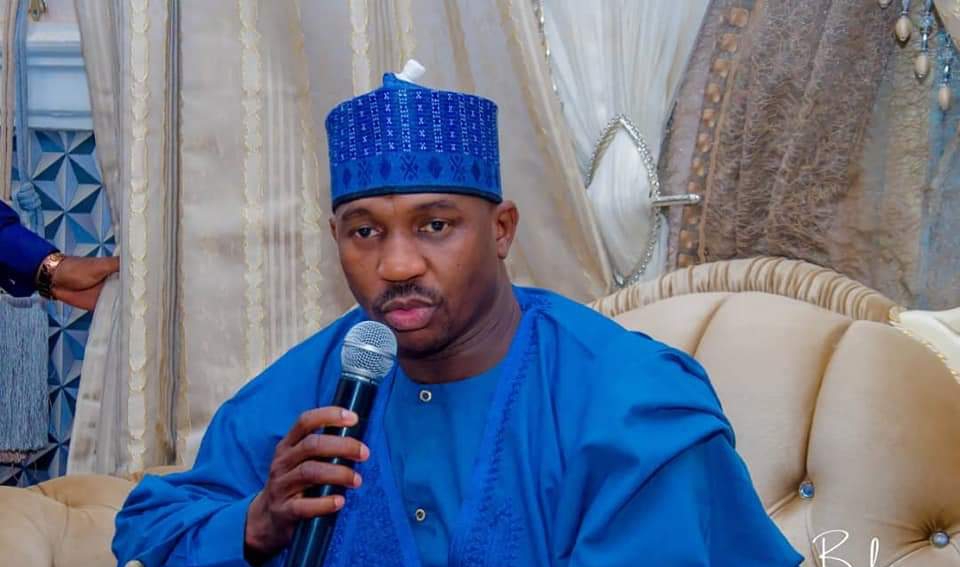Allowing Nigerians to bear guns won’t solve insecurity – IGP

The Inspector-Total of Police (IGP), Kayode Egbetokun, has pushed aside rising requires Nigerians to endure hands as a strategy of countering insecurity in the nation.
The IGP warned that such an intention would only escalate violence and deepen instability accurate throughout the nation.
He acknowledged this on Monday at the 2nd Nigeria democracy week organised by the National Democracy Stakeholders Neighborhood (NDSG) on behalf of the Secretary to the Executive of the Federation (SGF), Senator George Akume, in Abuja.
Represented by the Commissioner of Police, Federal Capital Territory (FCT), Ajao Adewale, the IGP properly-known that modern civilian get hold of accurate of entry to to firearms will not be any longer the technique to Nigeria’s multifaceted security disaster.
There has been an attraction by some prominent figures to the Federal Executive to enable Nigerians to endure hands to defend themselves, especially in the wake of the new attacks in Benue and Plateau states that left many tiresome.
Senator Ned Nwoko, representing Delta North Senatorial District, in 2024 sponsored a invoice geared in direction of empowering Nigerians to endure hands in self-defence in opposition to criminals.
Nwoko argued that permitting Nigerians to sustain hands would be a deterrent to criminals, doubtlessly addressing the nation’s worsening security allege.
However responding to the calls, the IGP maintained that violence can not be extinct to unravel violence.
“We want to learn from the countries that bear allowed such. To what extent will this solve the topic? It is possible you'll perchance perchance perchance't solve violence through violence. You solve violence by advocating for peace. Weapon will not be any longer the solution. Dialogue, tolerance, and accommodating each completely different are the formulation ahead,” he acknowledged.
Egbetokun emphasised that appropriate security must delay previous the absence of crime to encompass the protection of rights, welfare, and economic empowerment of electorate, consistent with Half 14(2)(b) of the 1999 Structure.
On electoral security, the IGP pushed aside claims that the police support in election rigging, describing such allegations as a figment of creativeness.
He acknowledged that the police’s role throughout elections is precisely tiny to providing security and making sure level-headed conduct.
“We're no longer partisans. We're relish umpires. The accountability of the police is tiny and restricted to the profession of security throughout the election year. As noteworthy as we remain on that, we can’t vote. Folks vote. The Self reliant National Electoral Price (INEC) count. We video display.
“And that is our allege, and the formulation ahead is that there became as soon as a renewed synergy, inter-agency collaboration, animated even the remark government, the INEC, the civil societies, in conjunction with coaching and retraining of officers to make distinct they conclude on their mandate,” he acknowledged.
Speaking, Akume acknowledged the reforms launched below the Tinubu administration are laying the groundwork for long-term national stability and inclusive economic development.
Akume, who became as soon as represented by the Permanent Secretary, Political and Financial Affairs Office, Engr. Nadungu Gagare, acknowledged that mid-term opinions must support as instruments of democratic accountability, no longer ceremonial events.
He properly-known that President Bola Tinubu took administrative heart at a time of world economic volatility and home fiscal stress, yet inner two years, the administration has launched into heroic structural reforms in key sectors.
In response to him, the government’s focal level on aligning policies with national pattern priorities and institutional coordination is already yielding a extra coherent governance structure.
He known as for the institutionalisation of mid-term efficiency opinions accurate through all ranges of presidency, advent of a national democratic resilience framework, and growth of citizen engagement through digital platforms and start governance.
Chairman of the Nigeria Democracy Stakeholders Neighborhood (NDSG), Dr. Kletsaint Akor, charged the Tinubu administration to request the mid-term length no longer as a ceremonial checkpoint, nevertheless as an alternate for deep accountability, inclusion, and pressing reforms.
In response to him, democracy must switch from promise to efficiency, and from slogans to service.
Reflecting on 26 years of uninterrupted civil rule, Akor, whereas acknowledging reforms such because the removal of gasoline subsidies and alternate price liberalisation, properly-known that economic hardship, rising discontent, and democratic exclusion are eroding public belief.
He warned that legitimacy must whisk previous pollvictories, in conjunction with that the 2023 customary elections, despite the fact that technologically improved, peaceful raised concerns about transparency in consequence management and judicial credibility.
“We must reimagine an electoral intention where every vote counts, and each citizen trusts the formulation. With out electoral legitimacy, governance becomes performative quite than productive. Enable us to come to a decision to institutionalising electoral reforms, in conjunction with funding independence for INEC, transparent appointment of commissioners, and strict
sanctions for malpractice,” he acknowledged.


























